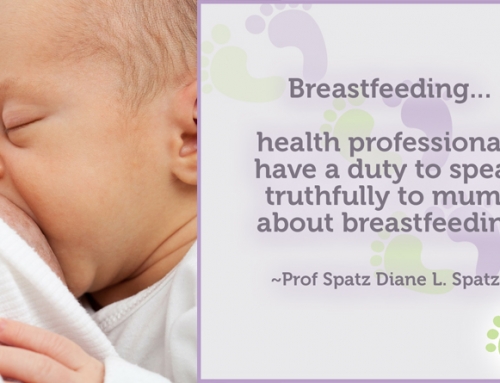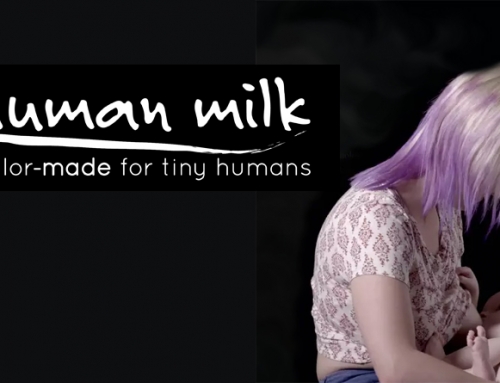Failure to breastfeed can fuel depression in new mothers
There is little doubt that new mothers understand the benefits of breastfeeding, yet the UK remains at the bottom of the “league tables” in terms of the numbers of new mums who take up breastfeeding as well as the high level who stop soon after they have started.
Priory Group consultant psychiatrist, Dr Kathryn Hollins, a UK expert in parent and child mental health, believes that to redress the balance, new mums need to be gently encouraged to explore all reasons as to why breastfeeding might not be working for them – and that an excessive amount of pressure, although well-intentioned, from health professionals and peers may do more harm than good.
Dr Hollins comments; “I am convinced that many mums would be breastfeeding their babies happily and for longer if early help from professionals and experienced mothers was available at the exact moments when mums are faced with a screaming, hungry baby who hasn’t quite worked out how to ‘latch on’. Practical help and emotional support is needed now. In the UK this doesn’t usually happen. We set mums up to ‘fail’.
“It’s not uncommon for pregnant women to feel ambivalent towards, or against, breastfeeding. The key is to be courageous and ask, ‘what are the reasons behind my negativity?’ As parents we frequently endure emotional discomfort on behalf of our children; breastfeeding is important enough to mean it’s worth working out your reasoning, despite the discomfort it may cause you. For example, for some, the bodily changes of pregnancy and the physical closeness of breastfeeding may feel unbearable perhaps due to an eating disorder history or other past issues.
“If so, specialist perinatal psychotherapy can transform these feelings and prepare women for motherhood.”
Echoing such concerns, an opinion poll commissioned by the Priory Group, amongst more than 1,000 parents from across the UK, found that 81% of those who recognised this pressure to breastfeed thought that this was a contributory factor to depression in mums, where breastfeeding was painful or unsuccessful.
A study published in the Journal of Maternal and Child Health supports the Priory’s findings about a link between depression and breast feeding “struggles”, reporting that those who planned to breastfeed but had not managed to, were 2.5 times more likely to develop postnatal depression, compared to those who hadn’t planned on breastfeeding.
According to research, only 1-2% of women are physiologically unable to breastfeed, suggesting there are also psychological factors, as well as physical reasons such as mastitis.
But while society continues to urge women to breastfeed, women are frequently unable to access the emotional and practical support necessary to achieve this goal.
Dr Hollins said that the “scope of issues affecting a new mum’s ability to breastfeed could be varied and complex:
- Life with a demanding and hungry new-born can be an emotional roller coaster – there can be great highs when everything’s going well as well as lows when things don’t go according to plan. If breastfeeding is part of the problem, then giving up might seem the solution to avoiding additional stress
- Despite the great strides made in promoting breastfeeding, some women still feel embarrassed or unwelcome in public places
- Although generally seen as positive and helpful, some women describe the hands-on approach of midwives and breastfeeding counsellors as crossing personal boundaries
- Breastfeeding can symbolise a loss of independence, particularly if the pregnancy or labour has been difficult. Some women – particularly if suffering from sleep deprivation and fatigue – describe breastfeeding as draining or literally “sucking their energy” away
- Much is made of breastfeeding being “a powerful symbol of a new role as a mother” but if it doesn’t happen, it can lead to great feelings of disappointment or of “failing” to live up to their own expectations”
Dr Hollins adds: “We know that once mum and baby are in the ‘groove’ of breastfeeding, it can be an immensely enjoyable time of intimacy and connection.
“I would therefore recommend to any new mum to proactively find out about breastfeeding support in her area, including breastfeeding cafes and drop-ins. It’s also vital to talk about breastfeeding struggles and not to be afraid of asking for help, whether from your midwife, GP or health visitor – or even being brave and requesting more specialist advice and support.
“Life does change – and, little by little, all new mums can become the mum they want to be for their children. And, if and when it feels right, that can certainly include successful breastfeeding.”
If you are having difficulty with breastfeeding, here are Dr Kathryn Hollins’ five tips to help you remain positive:
-
Pick up the phone and ask for help
There are national and local breastfeeding helplines, online support, face to face peer support groups or drop in sessions to help you with any breastfeeding problem, big or small. Getting help straightaway can transform you and your baby’s experience into an enjoyable one for you both.
You may like to consider contacting the free National Breastfeeding Helpline, which is available every day from 9.30am until 9.30pm (by telephone 0300 100 0212; or online support via www.nationalbreastfeedinghelpline.org.uk)
-
Contact your midwife or health visitor
Let your midwife or health visitor know you are struggling with feeding and arrange to meet with them. Find out about local support available with breastfeeding and bottle-feeding and consider meeting other mums locally with whom you can share the ups and downs of motherhood.
-
Accept support from those close to you
If you have a partner, a supportive mother, sister or friend, let them know what is happening and let them support you so that you can focus on making this work. You need looking after so you can feed your baby, because getting feeding going is exhausting and time-consuming.
-
Focus on what matters most for you and your baby
Remember that what matters most to your baby is you: that you are emotionally available to connect, relate and start bonding with your baby. Achieving this means being kind to yourself: drop the guilt if you feel it and if you can, and focus on what is important- loving your baby. Whether you breast, or bottle feed is secondary in terms of your baby’s health and happiness!
-
Be honest with yourself about how you are feeling
Please get help for your mental health if you feel low, anxious, scared or overwhelmed by feeding or other issues during motherhood. Have trust that it can be different and don’t let shame or fear mean that you suffer alone. Think about who you feel able to talk with first. It may be family, one of the helplines above, your GP, or your health visitor. You may like to ask about parent-infant psychotherapy if you are struggling with bonding with your baby or you may want to ask to be referred to a perinatal mental health team for any mental health problem during pregnancy or early motherhood.








Leave A Comment
You must be logged in to post a comment.